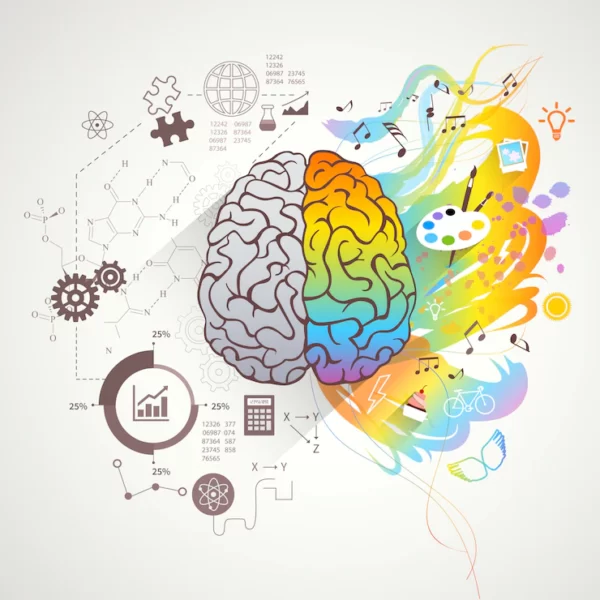Effect of Emotional Intelligence on Sales
Effect of emotional intelligence on sales can be discussed from different dimensions. Emotional intelligence consists of 5 important factors, each of which in turn affects the amount of sales. Contrary to the stereotype, the factors involved in people’s buying do not include things like logic, experience, and searching for information. Today, people pay attention to things beyond the features and benefits of products. Things like selling skills of a salesperson that are not limited to marketing and sales conversations.
In the meantime, we come across sellers who experience extremely powerful sales and are successful in this way. The reason for this success can be seen in their understanding of the new sales psychology. They know that what guarantees the loyalty of customers and affects their decision-making is their emotional experience of the product.
All the factors affecting the customer’s purchase, such as brand, color, quality, price, etc., are placed in the next priorities compared to emotions. In the competitive market we are facing, the factor of our superiority over our competitors is directly related to our ability to influence the customer.
The Effect of Emotional Intelligence Dimensions on Sales

1. Self- Awareness
Self-awareness, as a skill in selling, provides the possibility of identifying and understanding people’s feelings. A self-aware salesperson can manage their customer‘s time, energy, and emotions. Such sellers are usually less prone to emotional fluctuations and anger. Also, they are less likely to disappoint the customer and induce negative feelings.
2. Self-Regulation
In self-discipline, the salesperson should be able to recognize his feelings and adapt them to the situation and feelings of other people. As a result of this matching, psychological disturbances in the customer are avoided. A seller who has a predetermined framework and rules for his emotions and psychological reactions, negative emotions such as fear and anxiety will not be received from his conversations. Such sellers will be able to coordinate their behavior with their job needs and motivate customers to buy.
3. Social Skills
A salesperson with strong social skills is more successful in creating strong and meaningful relationships and maintaining these relationships with customers. Such a seller will be able to create a large and powerful network to increase his sales by increasing customer attraction. In addition, these sellers will be more successful in their interactions with their competitors.
4. Sympathy
We can consider empathy as the opposite of self-awareness; Because empathy is concerned with the ability to recognize and understand the buyer’s feelings. A salesperson who has the power of empathy can understand his customer’s feelings well and adjust his performance in line with his emotions and feelings. At the same time, empathy gives the seller the opportunity to know the needs, goals, weaknesses and pain points of the customer and try to solve them. The important point in this aspect of emotional intelligence is the ability to control empathy. Too much empathy makes the customer feel sorry and may discourage him from buying.
5. Motivation
Motivation is the inner motivation to do the work and achieve the goal. A highly motivated salesperson works with more energy and more time. A salesperson who works with more motivation is always full of hope and gets more opportunities than his competitors.
Ways of Improve Emotional Intelligence in the Sales Process

1. Patience in Identifying Customers’ Feelings
In order to empathize with the customer, we need to know his emotions and feelings. We need to be patient for this too. Knowing what the customer really thinks is not possible quickly. For this purpose, we must communicate and obtain evidence in the customer’s behavior and speech.
2. Being in the Position of the Customer
In order to know how the customer really feels, it is necessary to imagine ourselves in his position. The client needs to be sure that we fully understand his feelings rather than needing to identify his feelings.
3. Active Listening and Acceptance
To use emotional intelligence correctly, we must first be able to be a good listener for the customer; It means to hear only what the customer is trying to interpret and explain without judgment or prejudice. We must know that the whole reality is what the customer says and what is important is exactly the interpretations and opinions of the customer. So, without hurrying to present our products to the customer and trying to convince him to buy, we should first try to know his needs and desires accurately and completely.
4. Focus on the Answer
The key to success is not the speed of action. If we want to give the right answer to the customer’s wishes, needs and feelings, we must first pause and prepare the best answer in our mind. This feature goes back to the self-aware factor of our emotional intelligence. Being able to control our emotions in the moment shows that we have the self-aware dimension of emotional intelligence.
Up to Sum
First of all, successful salespeople have the ability to communicate well with customers. For this purpose, we must have strong emotional intelligence. Being able to use different dimensions of emotional intelligence in our interactions with customers and sales, such as self-awareness, empathy, etc., will make us a charismatic seller. The effect of emotional intelligence on sales will show itself as an increase in sales and profitability.


